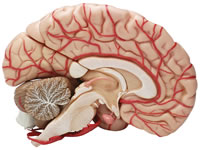Emotional Intelligence
 I was listening to someone in a meeting the other day talking at great length about a particular topic. Perhaps an unkind thought, but it occurred that he could have appeared on “just a minute” and done justice to any topic for the full minutes ranging from space travel to light refraction, to the theory of Transactional Analysis.
I was listening to someone in a meeting the other day talking at great length about a particular topic. Perhaps an unkind thought, but it occurred that he could have appeared on “just a minute” and done justice to any topic for the full minutes ranging from space travel to light refraction, to the theory of Transactional Analysis.
The contribution, although high on intellectual statements, lacked an emotional understanding of the situation he was talking about. The Papua New Guinea proverb says that “knowledge is only rumour until it becomes part of the muscles”…
“knowledge is only rumour until it becomes part of the muscles”…
Emotional intelligence defined
Emotional Intelligence – EQ – is a relatively recent behavioural model, rising to prominence with Daniel Goleman’s 1995 Book called ‘Emotional Intelligence’. Emotional Intelligence is increasingly relevant to organisational development and developing people, because the EQ principles provide a new way to understand and assess people’s behaviours, management styles, attitudes, interpersonal skills, and potential.
The term encompasses the following five characteristics and abilities:
- Self-awareness–knowing your emotions, recognizing feelings as they occur, and discriminating between them
- Mood management–handling feelings so they’re relevant to the current situation and you react appropriately
- Self-motivation–“gathering up” your feelings and directing yourself towards a goal, despite self-doubt, inertia, and impulsiveness
- Empathy–recognizing feelings in others and tuning into their verbal and nonverbal cues
- Managing relationships–handling interpersonal interaction, conflict resolution, and negotiations
Why do we need emotional intelligence?
Research in brain-based learning suggests that emotional health is fundamental to effective learning. According to a report from the National Centre for Clinical Infant Programmes, the most critical element for a student’s success in school is an understanding of how to learn. The key ingredients for this understanding are:
- Confidence
- Curiosity
- Intentionality
- Self-control
- Relatedness
- Capacity to communicate
- Ability to cooperate
These traits are all aspects of Emotional Intelligence. Basically, a student who learns to learn is much more apt to succeed. Emotional Intelligence has proven a better predictor of future success than traditional methods like the GPA, IQ, and standardized test scores.
“…in navigating our lives, it is our fears and envies, our rages and depressions, our worries and anxieties that steer us day to day. Even the most academically brilliant among us are vulnerable to being undone by unruly emotions. The price we pay for emotional literacy is in failed marriages and troubled families, in stunted social and work lives, in deteriorating physical health and mental anguish and, as a society, in tragedies such as killings…” (Daniel Goleman)
For a fuller overview and fact sheet on Emotional intelligence,click here
